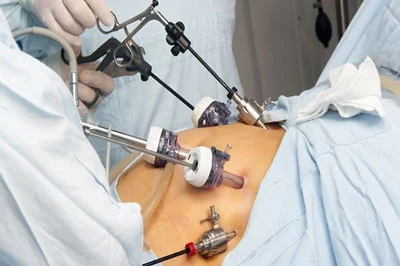What is Bariatric Surgery?
With the increasing prevalence of obesity, bariatric surgery in antalya has become an effective tool to promote weight loss and improve weight-related medical conditions. Currently, two commonly performed bariatric surgeries are Roux-en-Y gastric bypass (RYGB) and laparoscopic sleeve gastrectomy (LSG). Although bariatric surgery offers significant potential benefits to patients and reduces the risks associated with obesity-related diseases, there are potential complications associated with the surgery. Postoperative complications include nutritional deficiencies (depending on the type of surgery), bone loss, kidney stones, gastroesophageal reflux disease, and esophageal dysmotility (including secondary achalasia). In this article, we are going to examine esophageal dysfunction after bariatric surgery.
Common Dysfunctions After the Bariatric Surgery
Bariatric surgery complications can be worrying for some. Of course, every person has the right to be fully informed about any surgery they are going to undergo. Among the short-term side effects of bariatric surgery that may occur in patients, the following can be mentioned:
- Esophageal Dysfunction
- Reflux and heartburn
- Stomach pain and bleeding (Bleeding)
- Backache
- Decreased cold tolerance
- Formation of blood clots or thrombosis
- Wound infection
- Abdominal abscess formation
- Stomach leakage from staples (Stapler line leakage)
- Stenosis/stricture in the stomach
- Blockage in the stomach
Also, in the long term and after about 6 months from the surgery, the patients may face more long-term complications. Among the side effects of bariatric surgery that may occur in the long term, the following can be mentioned:
- Intolerance of a certain amount of food
- Indigestion
- Gastric ulcer
- Skin sagging due to excessive weight loss
- Hair loss due to a decrease in the number of vitamins in the body
- Nausea
- Having diarrhea
- Formation of gallstones
- Mood changes
Why Does Esophageal Dysfunction Occur After Bariatric Surgery?
According to studies, esophageal dysfunction, also known as dysphagia, is a common complication that may appear after bariatric surgery. Achalasia, esophageal dysfunction, and severe motility disturbances can occur even several years after bariatric surgery. It is a difficulty in swallowing and may occur due to changes in the anatomy of the esophagus, or due to problems in the muscles and nerves involved in swallowing food.
This problem can be caused by various factors such as ulcers or narrowing of the esophagus, problems with the muscles that control the movement of food through the esophagus, or damage to the nerves that control the muscles of the esophagus. Dysphagia can be a serious problem because it can lead to malnutrition, dehydration, and other complications.
Study Conducted On Esophageal Dysfunction After Bariatric Surgery
To define the prevalence of esophageal dysfunction and determine its effects on esophageal motility after bariatric surgery, researchers recently conducted a large retrospective database review. The results of this study were published in the American Journal of Gastroenterology (AJG) in 2020.
Materials and Methods Used In This Study
Using a procedural database that included patients treated at three large tertiary care centers, researchers identified 137 patients who underwent LSG or RYGB between June 2012 and February 2019.
In this group, 97 patients underwent High-Resolution Impedance Manometry (HRIM) after obesity. Surgery was done at a mean of 5.84 years before the study, and 40 patients with medically complex obesity underwent preoperative HRIM.
The cohort of patients who underwent postoperative HRIM included 39 (40.1%) patients who underwent LSG and 58 (59.8%) patients who underwent RYGB. This research team documented the demographic and clinical characteristics of the patients, and a blinded investigator interpreted the HRIM studies using the Chicago Classification of Esophageal Motility Disorders, version 3.0.
This research team documented the demographic and clinical characteristics of the patients, and a blinded investigator interpreted the HRIM studies using the Chicago Classification of Esophageal Motility Disorders, version 3.0.
The researchers also contacted a subset of 271 patients who underwent bariatric surgery between January 2014 and April 2015 and conducted a validated symptom assessment survey to measure the overall prevalence of dysphagia after surgery.
Results of This Study On Esophageal Dysfunction After Bariatric Surgery
Study findings indicate that postoperative dysphagia is an underrecognized and long-term complication of bariatric surgery, and both RYGB and LSG are associated with significant motility disorders after esophageal surgery, including achalasia and a newly described condition similar to achalasia are related. The following data shows the different forms of dysphagia identified in patients who have undergone bariatric surgery:
- Overall, 12.4% of patients in the postoperative HRIM group and 0% of patients in the preoperative HRIM group had achalasia or POSED
- Seven (7.2%) patients in the HRIM group after surgery and 0% of patients in the HRIM group before surgery had a manometric pattern consistent with achalasia
- Five (5.2%) of the patients in the postoperative HRIM group and 0% of the patients in the preoperative HRIM group had an isolated achalasia-like pattern, defined by peristalsis and increased intragastric pressure, known as esophageal dysfunction after the bariatric surgery (POSED)
Increased time since surgery was independently associated with the development of achalasia, POSED, and gross motor impairment. The prevalence of clinically significant dysphagia was 13.7% at a mean of 3.9 years after surgery among 271 patients examined after surgery for symptom assessment.
It should be mentioned that further studies are needed to elucidate risk factors and potential predictors associated with POSED and to identify patients who are at risk of developing this disease after gastric bypass surgery. We also need to focus on developing effective treatments for patients diagnosed with POSED.
How to Prevent the Esophageal Dysfunction After Bariatric Surgery?
Sometimes people think that surgery complications mean that bad things will happen if surgery is performed. Please keep in mind that complications, such as esophageal dysfunction, after bariatric surgery are only a possibility and do not mean that they will definitely occur. Also, no doctor can guarantee that the bariatric surgery will not cause any side effects.
Using Medgol Bariatric Surgery Services With Minimal Complications
As mentioned, complications such as esophageal disorder may appear after bariatric surgery. It should be noted that the occurrence or non-occurrence of these disorders can also depend on the experience of the surgeon.
Medgol Health Tourism Center will help you experience the least post-operative complications by using the most experienced surgeons. We also provide accommodation services for you before and after surgery. Just call us today.





